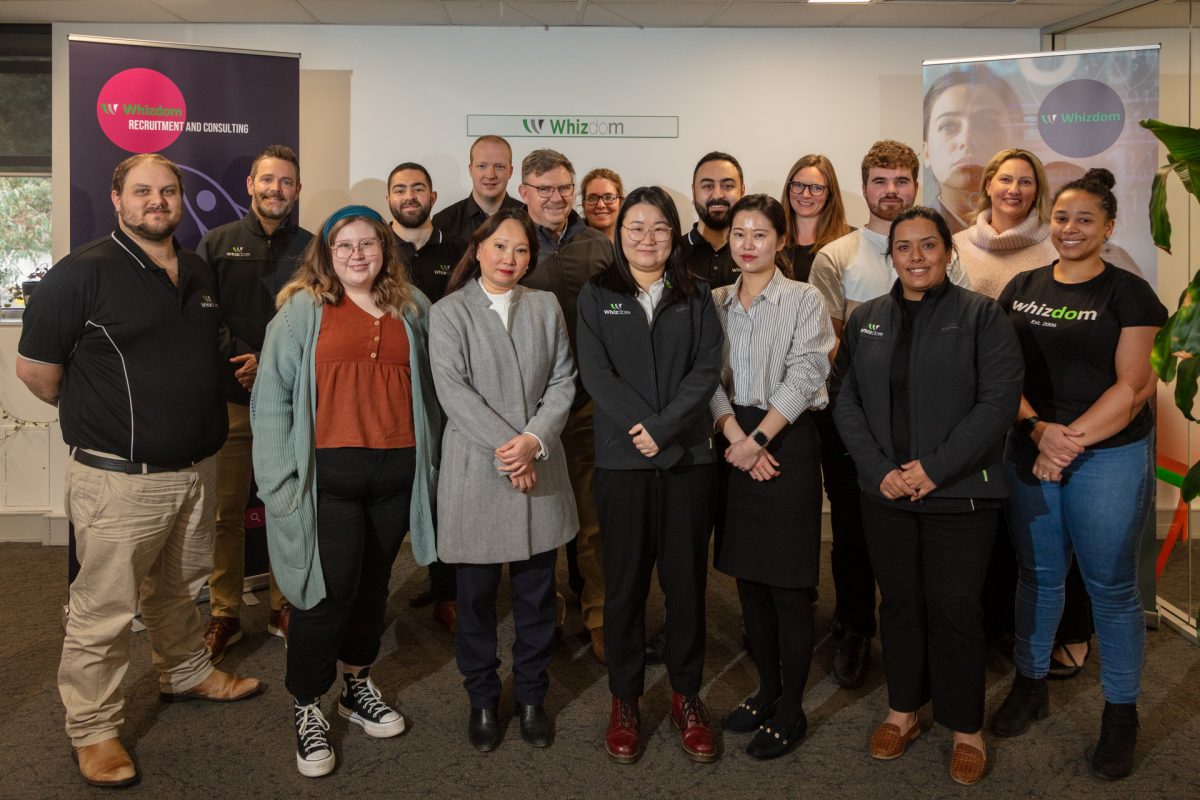
Whizdom CEO John McCluskey reckons you could be the unicorn a great employer is looking for and not know it. Photo: Thomas Lucraft.
Most people when applying for a job want to put their best foot forward – but many could be taking it a step too far. And it could be to their professional detriment, according to one industry specialist.
Whizdom managing director John McCluskey says in pursuit of perfection when matching their skills to those listed in job ads, a lot of “excellent candidates” are losing out on fulfilling roles.
“We’ve found a lot of really good candidates will look at a job ad and if they only meet some of the listed skills, they won’t throw their hat in the ring,” he says.
“Much of the time what they’re looking at is a ‘wishlist’. As recruiters, we can recognise when that’s the case, and we know when a candidate is, in fact, very well suited for a role and capable of upskilling to fill any gaps.”
It’s a common error and often comes down to misconceptions about job ads.
“Job specs on websites can be very generic, and this is problematic for candidates and potential employers,” John explains.
“That is the biggest benefit of applying for a job via a recruiter, as opposed to directly through Seek or other websites. Recruiters get more involved in a person’s career. We get to know candidates, and whether they’d fit in the culture and environment of the organisations or departments we represent.”
Even when they’re important gaps in a person’s skillset, it’s not always “game over”.
John says training and upskilling candidates is a critical component of finding the perfect match, particularly in challenging markets.
“If our client is looking for a unicorn, which they often are, sometimes it’s a case of finding the right horse and growing the horn,” he says.
For this reason the company invests in a candidate’s career well beyond their current role by providing up-skilling, career advice and impartial guidance to help foster work-life balance.
This includes free access to online learning resources such as LinkedIn Learning licences and in-house training sessions for industry and government-recognised certification in project management methodologies such as Prince2, Agile and ITIL.
“Often contractors come to the end of a project they’re working on and might want a bit of a change, or there’s a shortage of interesting roles in their current field. We provide insights into sectors where there is a skills shortfall, for which they might be suitable,” John says.
“We see ourselves more as career management consultants than straight-up recruiters.”

The Whizdom team members are more like career management consultants than recruiters. Photo: Thomas Lucraft.
Established in Canberra in 2006, Whizdom is an award-winning specialist provider of ICT services, technology, and administrative contractors and permanent personnel to government and private sector clients across Australia.
With headquarters still in Canberra, the firm has a Sydney office with plans for expansion, and a remote staff base.
With direct panel arrangements with federal and state government departments and multinational private sector clients, Whizdom contractors gain valuable opportunities to work on innovative technologies.
The firm has recently been involved in recruitment for the government’s submarine program and was the exclusive recruitment firm for the Australian Antarctic Division.
“It was really refreshing to be able to send people to the Antarctic for six to 12 months on such a fascinating gig. We had a lot of fun with that opportunity and hopefully it’s something we can repeat yearly,” John says.
In a time of worker and skill shortages and increased pressure to get bums on seats, it’s tempting to take a tick-and-flick approach to recruitment. But John says sustainable recruiting demands a long-sighted approach – even when it means admitting you don’t have the right fit.
“We have certainly had instances of people applying for roles and we’ve advised them from the outset that it’s not a good fit,” he says.
“We’ll also ‘fess up if we don’t have the right person for the role, because the last thing you want is to be the recruiter who put the square peg in a round hole. That wastes everyone’s time, and would embarrass the candidate and damage our reputation with the client.
“The process has to be collaborative, and focus on building long-term relationships with candidates and clients.”
Collaboration over competition is part of the fabric of the company, whose staff are paid higher base salaries supplemented by profit share, rather than the traditional commission-based models. The reason again circles back to favouring long-term relationships with clients and candidates.
“We find commission models breed an ‘every-man-for-himself’ culture that’s counter-productive to how we do business,” John says.
“Working on commissions can lead to rushed, sub-optimal hires and tends to incentivise a self-centred approach – it doesn’t facilitate the kind of collaborative environment we want to foster.
“We profit share because we want all workers from administration to recruiters to share in our collective success. This has better outcomes for clients and candidates and breeds a much more positive environment for our staff.”
For more information visit Whizdom.
Original Article published by Dione David on Riotact.











